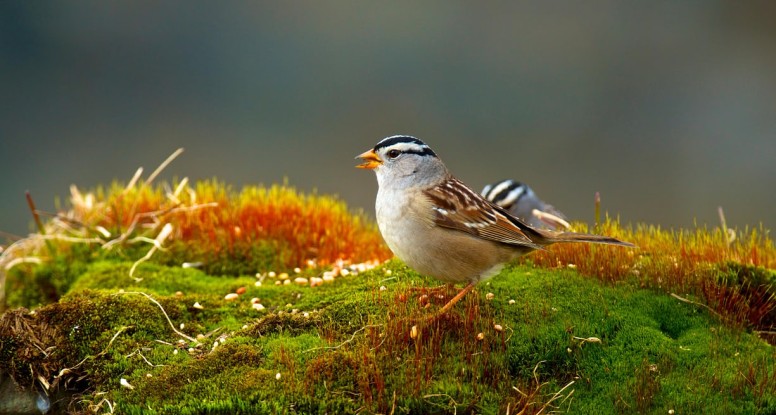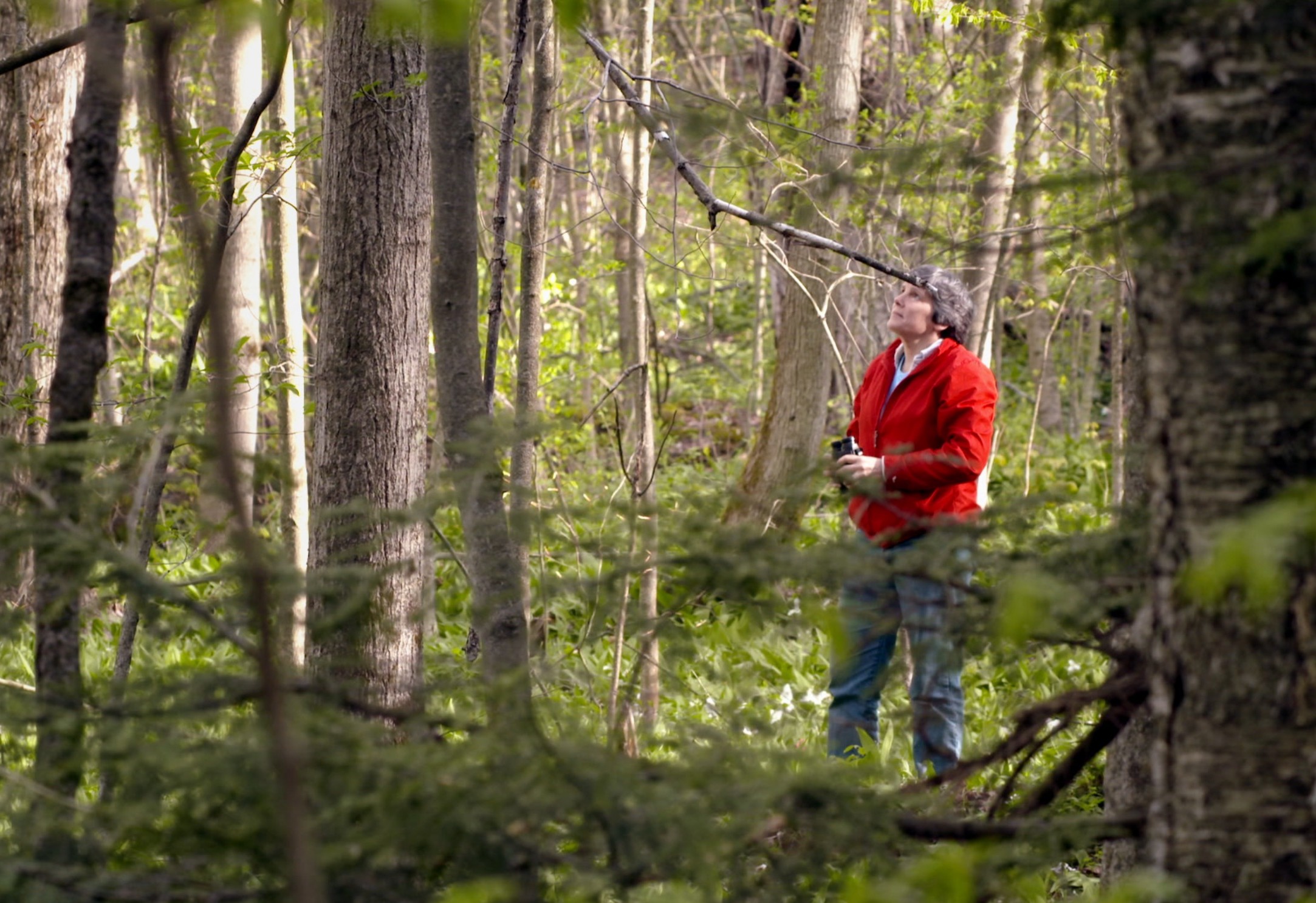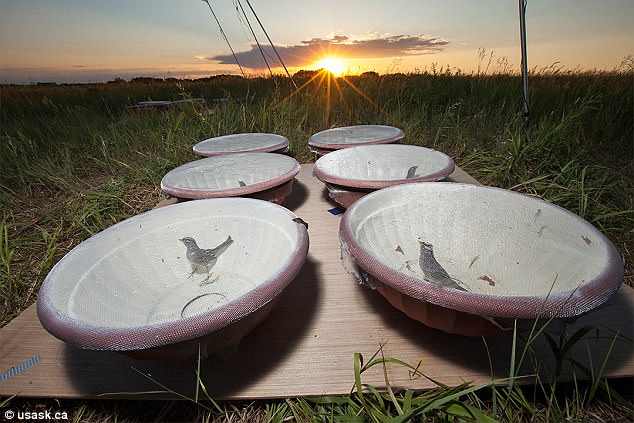Guest Blog post by Dr. Bridget Stutchbury
Pesticides are widely recognized as a risk to birds that forage in agricultural environments especially during migration. Since many current use insecticides are potent neurotoxins, we speculated that they could have behavioural effects in small songbirds landing in agricultural fields during their journey north if they consume tainted seeds or granules when they stop to fuel.
So we designed a study to test whether low level exposure to 2 widely used insecticides – imidacloprid (a neonicotinoid) and chlorpyrifos (an organophosphate) could disrupt the migratory ability of a wild-caught songbird. White-crowned sparrows, a common seed eater, were captured on migration and held in captivity at the Facility for Applied Avian Research at the University of Saskatchewan. After acclimation, we exposed the birds to either a low or high dose of either imidacloprid or chlorpyrifos at concentrations they could realistically encounter in the environment, and tested their orientation in a series of Emlen funnel migration trials before dosing, during the 3 day exposure, and during the recovery period.
What surprised us was how sensitive and rapid the effects were, particularly to imidacloprid.
The birds showed a significant loss of body mass and signs of acute poisoning (lethargy and loss of appetite). The migration trials also showed that birds completely failed to orient or changed their northward orientation, whereas controls continued to behave as expected. While the chlorpyrifos treated birds did not show toxicity in terms of weight loss, they too lost their migratory orientation. In the wild, we calculated that these effects would be seen if the birds consumed just a few treated seeds or granules mistaken as grit.
We were encouraged that most birds survived, and could recover following the cessation of dosing, but the effects we saw were severe enough that the birds would likely experience migratory delays or changes in their flight routes that could reduce their chance of survival or cause a missed breeding opportunity.
Since these chemicals are used over vast areas of North America and the timing of application directly overlaps with spring migration, the results of this study raises serious concern about the risk of increasing use of seed and granular pesticide treatments to millions of migrating songbirds.
*****
The study is a collaboration between Margaret Eng, PhD Candidate, Dr. Christy Morrissey, Avian toxicologist, University of Saskatchewan and Dr. Bridget Stutchbury, Biologist, York Unniversity.
********
Here is the article published in the peer-reviewed Scientific Reports. Stutch.Morrissey.Eng_et_al-2017_Sparrow toxicity IMI CPF_Scientific_Reports
Media coverage:
Daily Mail UK http://www.dailymail.co.uk/sciencetech/article-5130721/Controversial-pesticide-linkied-songbird-decline.html





